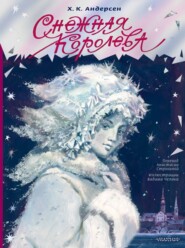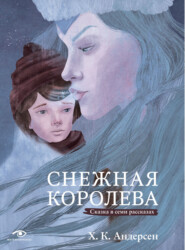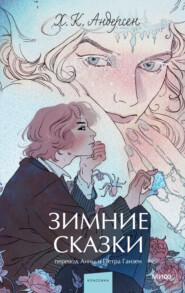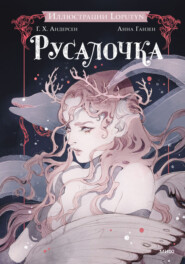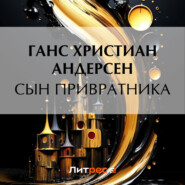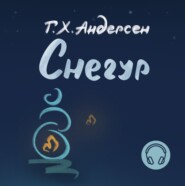По всем вопросам обращайтесь на: info@litportal.ru
(©) 2003-2024.
✖
The Sand-Hills of Jutland
Настройки чтения
Размер шрифта
Высота строк
Поля
The wealthy, mighty chief lay upon his couch, stiffened in all his limbs – stretched out like a mummy in the centre of the grand saloon with the many-coloured painted walls: it was as if he were lying in a tulip. Kinsmen and servants stood around him. Dead he was not, yet it could hardly be said that he lived. The healing bog-flower from the faraway lands in the north – that which she was to have sought and plucked for him – she who loved him best – would never now be brought. His beautiful young daughter, who in the magic garb of a swan had flown over sea and land away to the distant north, would never more return. "She is dead and gone," had the two swan ladies, her companions, declared on their return home. They had concocted a tale, and they told it as follows: —
"We had flown all three high up in the air when a sportsman saw us, and shot at us with his arrow. It struck our young friend; and, slowly singing her farewell song, she sank like a dying swan down into the midst of the lake in the wood. There, on its banks, under a fragrant weeping birch tree, we buried her. But we took a just revenge: we bound fire under the wings of the swallow that built under the sportman's thatched roof. It kindled – his house was soon in flames – he was burned within it – and the flames shone as far over the sea as to the drooping birch, where she is now earth within the earth. Alas! never will she return to the land of Egypt."
And they both wept bitterly; and the old stork-father, when he heard it, rubbed his bill until it was quite sore.
"Lies and deceit!" he cried. "I should like, above all things, to run my beak into their breasts."
"And break it off," said the stork-mother; "you would look remarkably well then. Think first of yourself, and the interests of your own family; everything else is of little consequence."
"I will, however, place myself upon the edge of the open cupola to-morrow, when all the learned and the wise are to assemble to take the case of the sick man into consideration: perhaps they may then arrive a little nearer to the truth."
And the learned and the wise met together, and talked much, deeply, and profoundly of which the stork could make nothing at all; and, sooth to say, there was no result obtained from all this talking, either for the invalid or for his daughter in "the wild morass;" yet, nevertheless, it was all very well to listen to – one must listen to a great deal in this world.
But now it were best, perhaps, for us to hear what had happened formerly. We shall then be better acquainted with the story – at least, we shall know as much as the stork-father did.
"Love bestows life; the highest love bestows the highest life; it is only through love that his life can be saved," was what had been said; and it was amazingly wisely and well said, the learned declared.
"It is a beautiful thought," said the stork-father.
"I don't quite comprehend it," said the stork-mother, "but that is not my fault – it is the fault of the thought; though it is all one to me, for I have other things to think upon."
And then the learned talked of love between this and that – that there was a difference. Love such as lovers felt, and that between parents and children; between light and plants; how the sunbeams kissed the ground, and how thereby the seeds sprouted forth – it was all so diffusely and learnedly expounded, that it was impossible for the stork-father to follow the discourse, much less to repeat it. It made him very thoughtful, however; he half closed his eyes, and actually stood on one leg the whole of the next day, reflecting on what he had heard. So much learning was difficult for him to digest.
But this much the stork-father understood. He had heard both common people and great people speak as if they really felt it, that it was a great misfortune to many thousands, and to the country in general, that the king lay so ill, and that nothing could be done to bring about his recovery. It would be a joy and a blessing to all if he could but be restored to health.
"But where grew the health-giving flower that might cure him?" Everybody asked that question. Scientific writings were searched, the glittering stars were consulted, the wind and the weather. Every traveller that could be found was appealed to, until at length the learned and the wise, as before stated, pitched upon this: "Love bestows life – life to a father." And though this dictum was really not understood by themselves, they adopted it, and wrote it out as a prescription. "Love bestows life" – well and good. But how was this to be applied? Here they were at a stand. At length, however, they agreed that the princess must be the means of procuring the necessary help, as she loved her father with all her heart and soul. They also agreed on a mode of proceeding. It is more than a year and a day since then. They settled that when the new moon had just disappeared, she was to betake herself by night to the marble sphinx in the desert, to remove the sand from the entrance with her foot, and then to follow one of the long passages which led to the centre of the great pyramids, where one of the most mighty monarchs of ancient times, surrounded by splendour and magnificence, lay in his mummy-coffin. There she was to lean her head over the corpse, and then it would be revealed to her where life and health for her father were to be found.
All this she had performed, and in a dream had been instructed that from the deep morass high up in the Danish land – the place was minutely described to her – she might bring home a certain lotus flower, which beneath the water would touch her breast, that would cure him.
And therefore she had flown, in the magical disguise of a swan, from Egypt up to "the wild morass." All this was well known to the stork-father and the stork-mother; and now, though rather late, we also know it. We know that the mud-king dragged her down with him, and that, as far as regarded her home, she was dead and gone; only the wisest of them all said, like the stork-mother, "She can take care of herself;" and, knowing no better, they waited to see what would turn up.
"I think I shall steal their swan garbs from the two wicked princesses," said the stork-father; "then they will not be able to go to 'the wild morass' and do mischief. I shall leave the swan disguises themselves up yonder till there is some use for them."
"Where could you keep them?" asked the old female stork.
"In our nest near 'the wild morass,'" he replied. "I and our eldest young ones can carry them; and if we find them too troublesome, there are plenty of places on the way where we can hide them until our next flight. One swan's dress would be enough for her, to be sure; but two are better. It is a good thing to have abundant means of travelling at command in a country so far north."
"You will get no thanks for what you propose doing," said the stork-mother; "but you are the master, and must please yourself. I have nothing to say except at hatching-time."
At the Viking's castle near "the wild morass," whither the storks were flying in the spring, the little girl had received her name. She was called Helga; but this name was too soft for one with such dispositions as that lovely creature had. She grew fast month by month; and in a few years, even while the storks were making their habitual journeys in autumn towards the Nile, in spring towards "the wild morass," the little child had grown up into a big girl, and before any one could have thought it, she was in her sixteenth year, and a most beautiful young lady – charming in appearance, but hard and fierce in temper – the most savage of the savage in that gloomy, cruel time.
It was a pleasure to her to sprinkle with her white hands the reeking blood of the horse slaughtered for an offering. She would bite, in her barbarous sport, the neck of the black-cock which was to be slaughtered by the sacrificial priest; and to her foster-father she said in positive earnestness, —
"If your enemy were to come and cast ropes over the beams that support the roof, and drag them down upon your chamber whilst you were sleeping, I would not awaken you if I could – I would not hear it – the blood would tingle as it does now in that ear on which, years ago, you dared to give me a blow. I remember it well."
But the Viking did not believe she spoke seriously. Like every one else, he was fascinated by her extreme beauty, and never troubled himself to observe if the mind of little Helga were in unison with her looks. She would sit on horseback without a saddle, as if grown fast to the animal, and go at full gallop; nor would she spring off, even if her horse and other ill-natured ones were biting each other. Entirely dressed as she was, she would cast herself from the bank into the strong current of the fiord, and swim out to meet the Viking when his boat was approaching the land. Of her thick, splendid hair she had cut off the longest lock, and plaited for herself a string to her bow.
"Self-made is well made," she said.
The Viking's wife, according to the manners and customs of the age in which she lived, was strong in mind, and decided in purpose; but with her daughter she was like a soft, timid woman. She was well aware that the dreadful child was under the influence of sorcery.
And Helga apparently took a malicious pleasure in frightening her mother. Often when the latter was standing on the balcony, or walking in the courtyard, Helga would place herself on the side of the well, throw her arms up in the air, and then let herself fall headlong into the narrow, deep hole, where, with her frog nature, she would duck and raise herself up again, and then crawl up as if she had been a cat, and run dripping of water into the grand saloon, so that the green rushes which were strewed over the floor partook of the wet stream.
There was but one restraint upon little Helga – that was the evening twilight. In it she became quiet and thoughtful – would allow herself to be called and guided; then too, she would seem to feel some affection for her mother; and when the sun sank, and the outer and inward change took place, she would sit still and sorrowful, shrivelled up into the form of a frog, though the head was now much larger than that little animal's, and therefore she was uglier than ever: she looked like a miserable dwarf, with a frog's head and webbed fingers. There was something very sad in her eyes; voice she had none except a kind of croak like a child sobbing in its dreams. Then would the Viking's wife take her in her lap; she would forget the ugly form, and look only at the melancholy eyes; and more than once she exclaimed, —
"I could almost wish that thou wert always my dumb fairy-child, for thou art more fearful to look at when thy form resumes its beauty."
And she wrote Runic rhymes against enchantment and infirmity, and threw them over the poor creature; but there was no change for the better.
"One could hardly believe that she was once so small as to lie in the calyx of a water-lily," said the stork-father. "She is now quite a woman, and the image of her Egyptian mother. Her, alas! we have never seen again. She did not take good care of herself, as thou didst expect and the learned people predicted. Year after year I have flown backwards and forwards over 'the wild morass,' but never have I seen a sign of her. Yes, I can assure thee, during the years we have been coming up here, when I have arrived some days before thee, that I might mend the nest and set everything in order in it, I have for a whole night flown, as if I had been an owl or a bat, continually over the open water, but to no purpose. We have had no use either for the two swan disguises which I and the young ones dragged all the way up here from the banks of the Nile. It was hard enough work, and it took us three journeys to bring them up. They have now lain here for years at the bottom of our nest; and should a fire by any chance break out, and the Viking's house be burned down, they would be lost."
"And our good nest would be lost," said the old female stork; "but thou thinkest less of that than of these feather things and thy bog princess. Thou hadst better go down to her at once, and remain in the mire. Thou art a hard-hearted father to thine own: that I have said since I laid my first eggs. What if I or one of our young ones should get an arrow under our wings from that fierce crazy brat at the Viking's? She does not care what she does. This has been much longer our home than hers, she ought to recollect. We do not forget our duty; we pay our rent every year – a feather, an egg, and a young one – as we ought to do. Dost thou think that when she is outside I can venture to go below, as in former days, or as I do in Egypt, where I am almost everybody's comrade, not to mention that I can there even peep into the pots and pans without any fear? No; I sit up here and fret myself about her – the hussy! and I fret myself at thee too. Thou shouldst have left her lying in the water-lily, and there would have been an end of her."
"Thy words are much harder than thy heart," said the stork-father. "I know thee better than thou knowest thyself."
And then he made a hop, flapped his wings twice, stretched his legs out behind him, and away he flew, or rather sailed, without moving his wings, until he had got to some distance. Then he brought his wings into play; the sun shone upon his white feathers; he stretched his head and his neck forward, and hastened on his way.
"He is, nevertheless, still the handsomest of them all," said his admiring mate; "but I will not tell him that."
Late that autumn the Viking returned home, bringing with him booty and prisoners. Among these was a young Christian priest, one of the men who denounced the gods of the Northern mythology. Often about this time was the new religion talked of in baronial halls and ladies' bowers – the religion that was spreading over all lands of the south, and which, with the holy Ansgarius,[2 - Ansgarius was originally a monk from the monastery of New Corbie, in Saxony, to which several of the monks of Corbie in France had migrated in a. d. 822. Its abbot, Paschasius Radbert, who died in 865, was, according to Cardinal Bellarmine, the first fully to propagate the belief, now entertained in the Roman Catholic Church, of the corporeal presence of the Saviour in the sacrament. Ansgarius, who was very enthusiastic, accepted a mission to the north of Europe, and preached Christianity in Denmark and Sweden. Jutland was for some time the scene of his labours, and he made many converts there; also in Sleswig, where a Christian school for children was established, who, on leaving it, were sent to spread Christianity throughout the country. An archbishopric was founded by the then Emperor of Germany in conformity to a plan which had been traced, though not carried out, by Charlemagne; and this was bestowed upon Ansgarius. But the church he had built was burnt by some still heathen Danes, who, gathering a large fleet, invaded Hamburg, which they also reduced to ashes. The emperor then constituted him Bishop of Bremen. —Trans.] had even reached as far as Hedeby. Even little Helga had heard of the pure religion of Christ, who, from love to mankind, had given himself as a sacrifice to save them; but with her it went in at one ear and out at the other, to use a common saying. The word love alone seemed to have made some impression upon her, when she shrunk into the miserable form of a frog in the closed-up chamber. But the Viking's wife had listened to, and felt herself wonderfully affected by, the rumour and the Saga about the Son of the one only true God.
The men, returning from their expedition, had told of the splendid temples of costly hewn stone raised to Him whose errand was love. A pair of heavy golden vessels, beautifully wrought out of pure gold, were brought home, and both had a charming, spicy perfume. They were the censers which the Christian priests swung before the altars, on which blood never flowed; but wine and the consecrated bread were changed into the blood of Him who had given himself for generations yet unborn.
To the deep, stone-walled cellars of the Viking's loghouse was the young captive, the Christian priest, consigned, fettered with cords round his feet and his hands. He was as beautiful as Baldur to look at, said the Viking's wife, and she was grieved at his fate; but young Helga wished that he should be ham-strung, and bound to the tails of wild oxen.
"Then I should let loose the dogs. Halloo! Then away over bogs and pools to the naked heath. Hah! that would be something pleasant to see – still pleasanter to follow him on the wild journey."
But the Viking would not hear of his being put to such a death. On the morrow, as a scoffer and denier of the high gods, he was to be offered up as a sacrifice to them upon the blood stone in the sacred grove. He was to be the first human sacrifice ever offered up there.
Young Helga prayed that she might be allowed to sprinkle with the blood of the captive the images of the gods and the assembled spectators. She sharpened her gleaming knife, and, as one of the large ferocious dogs, of which there were plenty in the courtyard, leaped over her feet, she stuck the knife into his side.
"That is to prove the blade," she exclaimed.
And the Viking's wife was shocked at the savage-tempered, evil-minded girl; and when night came, and the beauteous form and the disposition of her daughter changed, she poured forth her sorrow to her in warm words, which came from the bottom of her heart.
The hideous frog with the ogre head stood before her, and fixed its brown sad eyes upon her, listened, and seemed to understand with a human being's intellect.
"Never, even to my husband, have I hinted at the double sufferings I have through you," said the Viking's wife. "There is more sorrow in my heart on your account than I could have believed. Great is a mother's love. But love never enters your mind. Your heart is like a lump of cold hard mud. From whence did you come to my house?"
Then the ugly shape trembled violently; it seemed as if these words touched an invisible tie between the body and the soul – large tears started to its eyes.
"Your time of trouble will come some day, depend on it," said the Viking's wife, "and dreadful will it also be for me. Better had it been that you had been put out on the highway, and the chillness of the night had benumbed you until you slept in death;" and the Viking's wife wept salt tears, and went angry and distressed away, passing round behind the loose skin partition that hung over an upper beam to divide the chamber.
Alone in a corner sat the shrivelled frog. She was mute, but after a short interval she uttered a sort of half-suppressed sigh. It was as if in sorrow a new life had awoke in some nook of her heart. She took a step forward, listened, advanced again, and grasping with her awkward hands the heavy bar that was placed across the door, she removed it softly, and quietly drew away the pin that was stuck in over the latch. She then seized the lighted lamp that stood in the room beyond: it seemed as if a great resolution had given her strength. She made her way down to the dungeon, drew back the iron bolt that fastened the trap-door, and slid down to where the prisoner was lying. He was sleeping. She touched him with her cold, clammy hand; and when he awoke, and beheld the disgusting creature, he shuddered as if he had seen an evil apparition. She drew her knife, severed his bonds, and beckoned to him to follow her.
He named holy names, made the sign of the cross, and when the strange shape stood without moving, he exclaimed, in the words of the Bible, —
"'Blessed is he that considereth the poor: the Lord will deliver him in time of trouble.' Who art thou? How comes it that, under the exterior of such an animal, there is so much compassionate feeling?"






